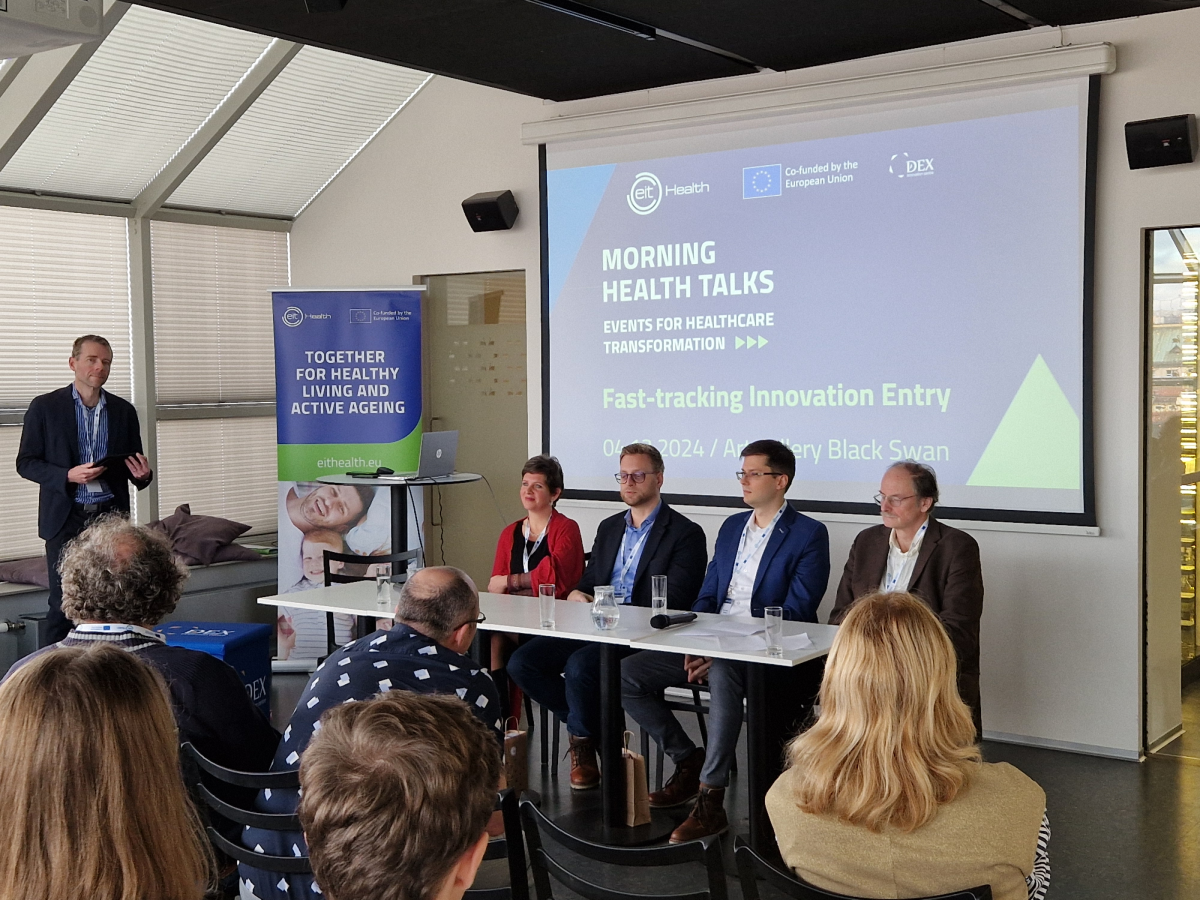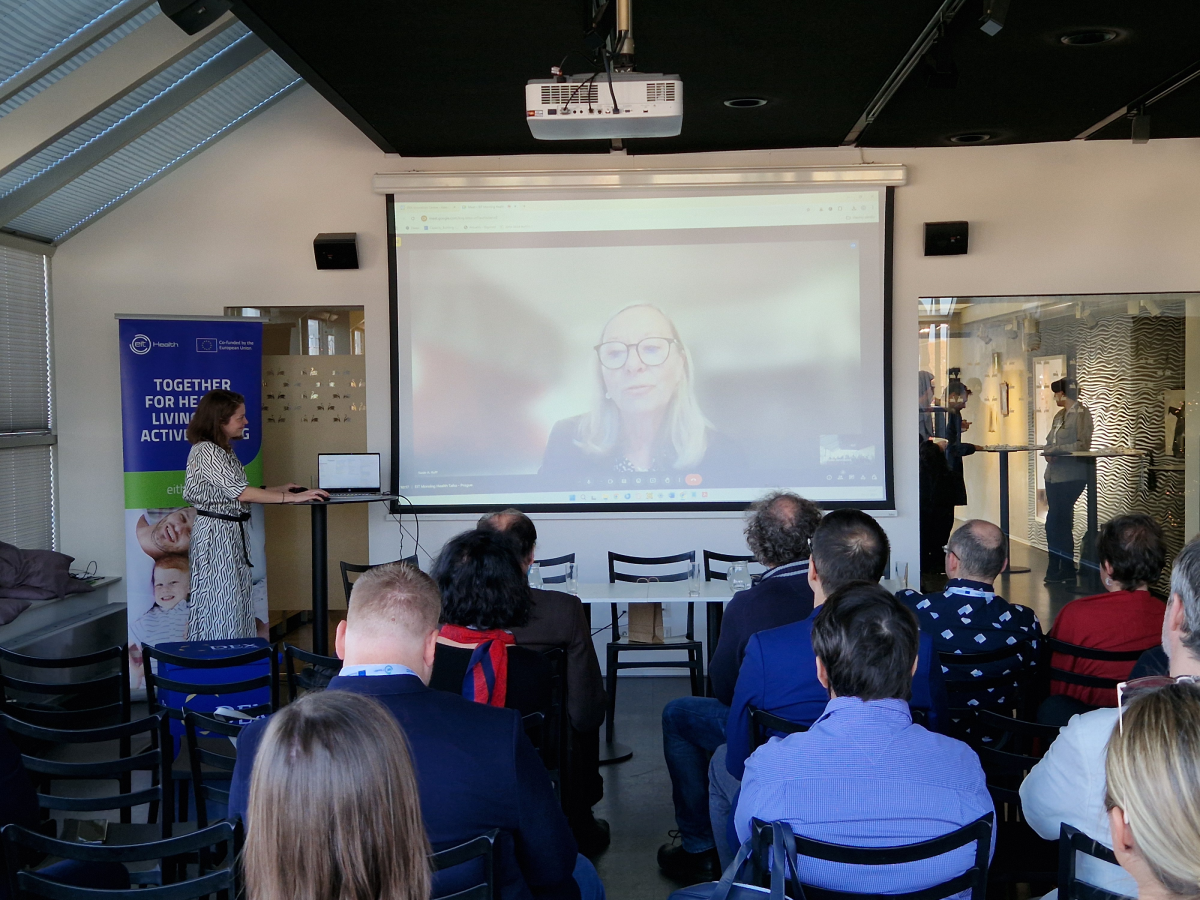
- Search term must have more than 2 characters.

Innovation in healthcare is not just about technology but also about people, processes, and collaboration. The keynote speaker, Susie A. Ruff from Denmark, summed up the main idea: „Successful innovation implementation requires a combination of strategic leadership, openness to change, and long-term collaboration among all key players.”
Management as a Key Factor
Hospital management often plays a decisive role in whether innovations succeed. Antonín Hlavinka, Deputy Director of the University Hospital Olomouc, explained his institution’s approach: „We created a dedicated department for innovation and digitization. This step allows us to systematically evaluate and implement new technologies that can improve patient care and hospital efficiency.“ A similar experience was shared by Vendula Macháčková, Head of Science and Research at the Regional Hospital Liberec. According to her, it is essential to balance innovations with daily operations: „I have to weigh economic arguments against the needs of healthcare workers. The key is to show how innovations can improve efficiency and the quality of care. Doctors and nurses often don’t have time to think about changes, but when we show them concrete benefits, they become enthusiastic about innovation.“



Startups as the Driving Force of Innovation
Startups bring new ideas and technologies to healthcare, but they face many challenges. Martin Vantara, CEO of Bindworks, emphasized that successful innovations often emerge from direct collaboration with those who will use them. „Successful innovations often arise in collaboration with doctors and nurses solving specific practical problems. It is important that these solutions are not only useful but also easy to implement. If doctors or healthcare workers don’t adopt them, the innovation fails.“ However, startups face regulatory and financial barriers that can slow their growth. „Certification processes can take several years,” warned Vantara. „During this time, securing funding and strategic partners is crucial, but it’s not easy.”
Universities as Innovation Hubs
Universities play a key role as sources of innovation and technology transfer. Vendula Macháčková highlighted that collaboration between students and experts from different fields often leads to unique ideas: „Collaboration between students from various fields – from healthcare to economics and technology – brings inspiring results. One out of fifteen ideas can become a star that truly changes practice.“ Still, transferring innovations from academia to hospitals remains a challenge. Zdeněk Gütter, an expert from the Ministry of Health, stressed the need for better support for technology transfer: „Creating a functional environment for technology transfer is essential. Abroad, in countries like Germany, proven models such as DiGA already exist, and we could adapt them to Czech conditions.“
Barriers Along the Way: Legislation and Funding
One of the biggest problems in implementing innovations is legislative restrictions and certification costs. According to Zdeněk Gütter, the European Union is working on harmonizing rules to simplify this process: „European frameworks, such as the Data Governance Act or the European Health Data Space, can significantly simplify working with data and enable faster implementation of innovations.
However, we need to ensure that startups receive the necessary support during long certification processes.“ Startups like Bindworks still face a challenging reality. „It takes five years for an idea to become a reality that is approved and funded," said Vantara. „This process is demanding in terms of time, money, and patience. We need a system that helps startups survive this long journey.“
Moving Towards Modern Healthcare
The discussion clearly showed that implementing innovations in healthcare requires a comprehensive approach. Collaboration between hospitals, startups, universities, and public authorities is key to success. As Zdeněk Gütter summarized: „Safety, effectiveness, and transparency are the foundation of every innovation. If we want to stay competitive in Europe, we must create an environment that not only allows innovations to emerge but also quickly brings them into practice.“ These words underline the importance of connecting key players across sectors, which is crucial for effectively introducing new solutions into healthcare practice. „Innovations succeed only when the right people and institutions are connected. At DEX Innovation Centre, as the EIT Health Hub, we create opportunities for such connections through events like EIT Health Morning Health Talks or by collaborating with hospitals and mapping their needs,“ concluded Helena Jurašková from DEX Innovation Centre.
